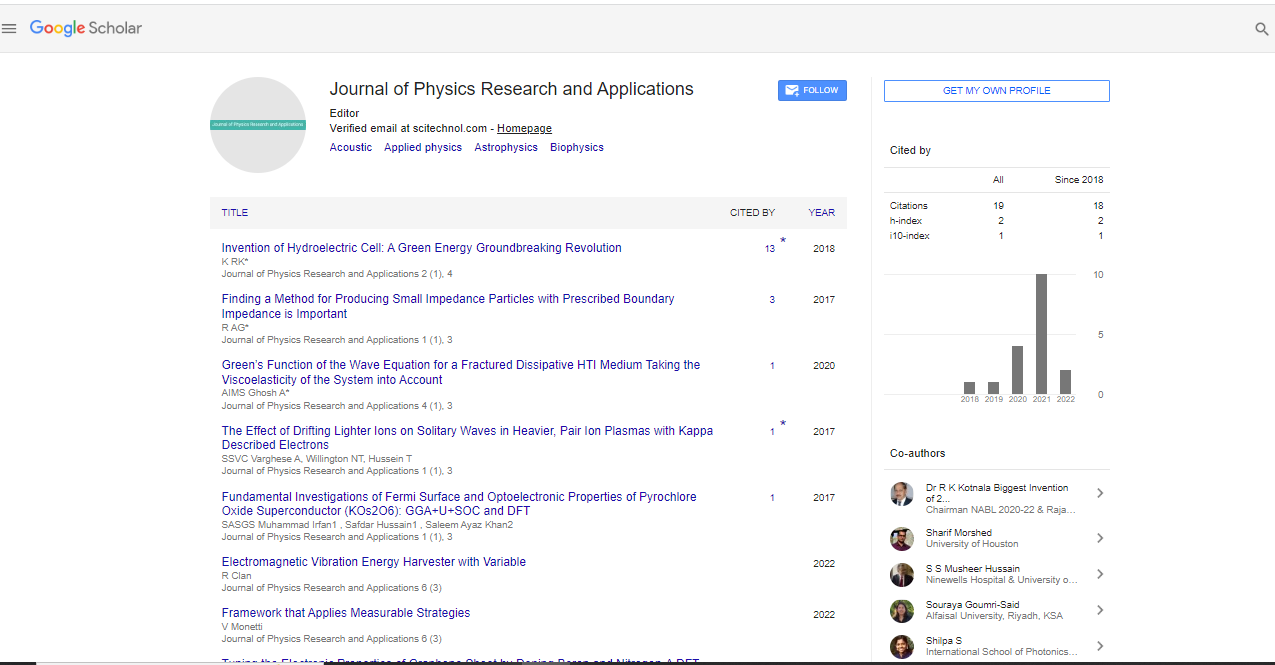Opinion Article, J Phys Res Appl Vol: 7 Issue: 2
Quantum Channel Capacity and Quantum Communication Complexity
Julian Ibar*
Department of Science, Engineering and Public Policy, Fitzroy Square, London, UK
*Corresponding Author: Julian Ibar
Department of Science, Engineering and Public Policy, Fitzroy Square, London, UK
E-mail: ibarj@ucl.ac.uk
Received date: 22 May, 2023, Manuscript No. JPRA-23-105299;
Editor assigned date: 24 May, 2023, Pre QC. JPRA-23-105299(PQ);
Reviewed date: 15 June, 2023, QC No. JPRA-23-105299;
Revised date: 22 June, 2023, Manuscript No. JPRA-23-105299(R);
Published date: 29 June, 2023, DOI: 10.4172/JPRA.1000035
Citation: Ibar J (2023) Quantum Channel Capacity and Quantum Communication Complexity. J Phys Res Appl 7:2.
Description
Quantum communication is an emerging field that explores the transfer of information using quantum systems, which offer advantages over classical communication schemes. Two fundamental concepts in this field are quantum channel capacity and quantum communication complexity. This study aims to provide a brief overview of these concepts and their significance in quantum communication protocols.
Quantum channel capacity
The quantum channel capacity represents the maximum amount of quantum information that can be reliably transmitted through a given quantum channel. In classical communication, the channel capacity is determined by the channel's noise level, but in quantum communication, it is influenced by additional factors such as entanglement and quantum superposition.
One of the key results in quantum information theory is the quantum channel capacity formula. This formula determines the capacity of a quantum channel by maximizing over all possible quantum states that can be transmitted through it. The channel capacity depends on the physical properties of the channel, such as its noise characteristics and the resources available for encoding and decoding quantum information.
Quantum communication complexity
Quantum communication complexity measures the amount of communication required to perform a specific computational task using quantum systems. It is particularly relevant in scenarios where multiple parties need to collaborate to solve a computational problem.
The goal is to minimize the amount of communication between the parties while achieving the desired outcome.
Quantum communication complexity is closely related to quantum algorithms and protocols such as quantum teleportation and quantum key distribution. By exploiting quantum entanglement and superposition, these protocols enable efficient communication and secure information transfer. Understanding the communication complexity of quantum algorithms is essential for designing efficient quantum communication protocols and optimizing resource utilization.
Applications and challenges
Quantum channel capacity and communication complexity have important implications for various quantum communication applications. Quantum cryptography, for example, relies on secure communication channels with high channel capacity to ensure the confidentiality of transmitted information. By characterizing and optimizing the channel capacity, researchers can design more robust and secure quantum cryptographic protocols.
Furthermore, quantum communication complexity plays a vital role in distributed computing and quantum networking. It helps quantify the efficiency and scalability of distributed quantum algorithms, enabling the design of protocols that minimize communication overhead and improve computational speed.
However, there are challenges associated with studying quantum channel capacity and communication complexity. The mathematical analysis of these concepts often involves complex optimization problems and requires a deep understanding of quantum information theory. Additionally, experimental implementation of quantum communication protocols is a nontrivial task, demanding sophisticated control and measurement techniques.
Conclusion
In conclusion, quantum channel capacity and quantum communication complexity are fundamental concepts in quantum communication. They provide insights into the limits and capabilities of quantum information transmission and play a key role in the design of secure communication protocols and distributed quantum algorithms. Further research in this field is necessary to develop efficient quantum communication systems that leverage the advantages of quantum phenomena. Indeed, quantum channel capacity and quantum communication complexity are essential concepts in the realm of quantum communication. They offer valuable insights into the potential and constraints of transmitting quantum information and have significant implications for the development of secure communication protocols and distributed quantum algorithms.
 Spanish
Spanish  Chinese
Chinese  Russian
Russian  German
German  French
French  Japanese
Japanese  Portuguese
Portuguese  Hindi
Hindi 
